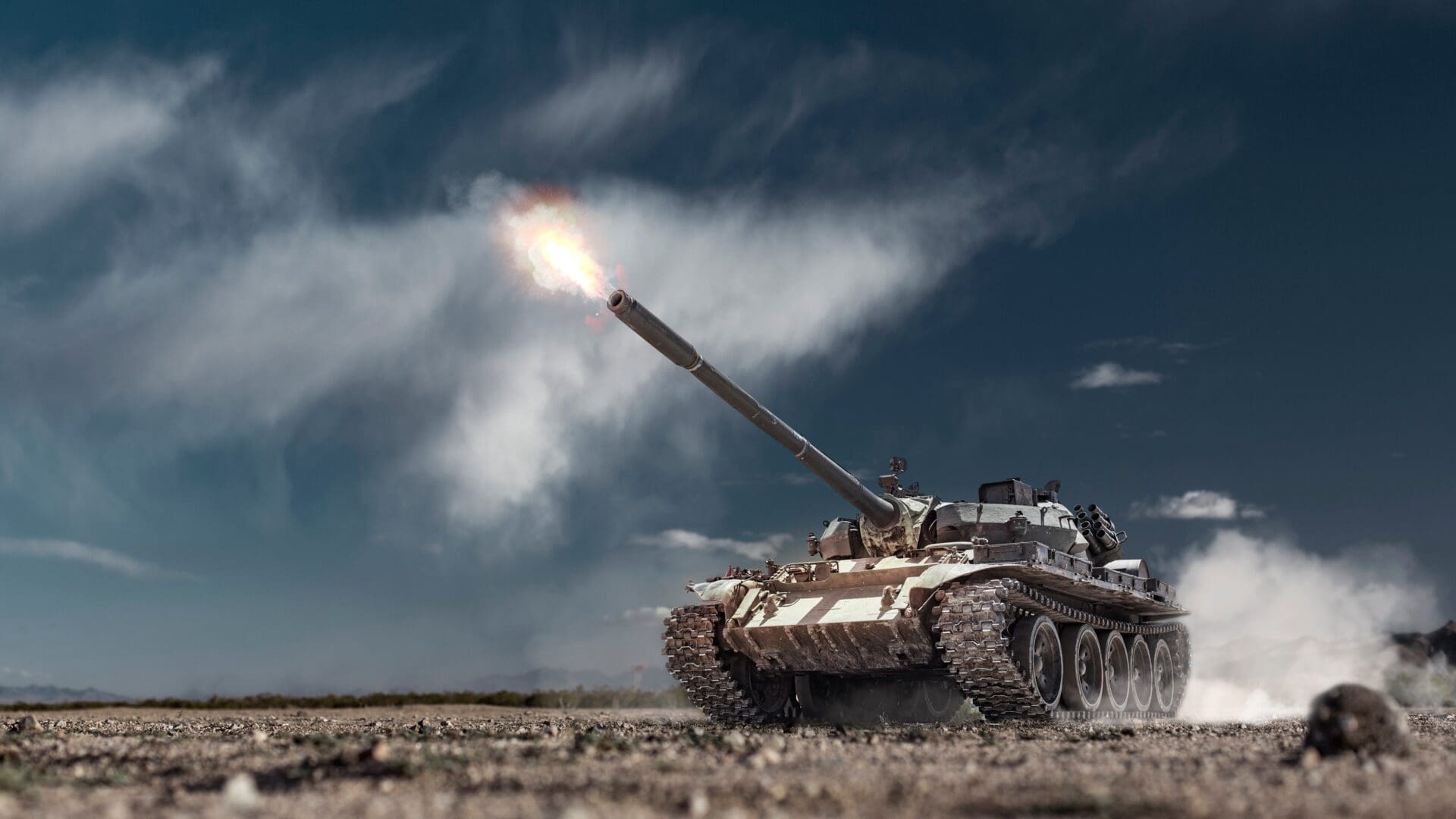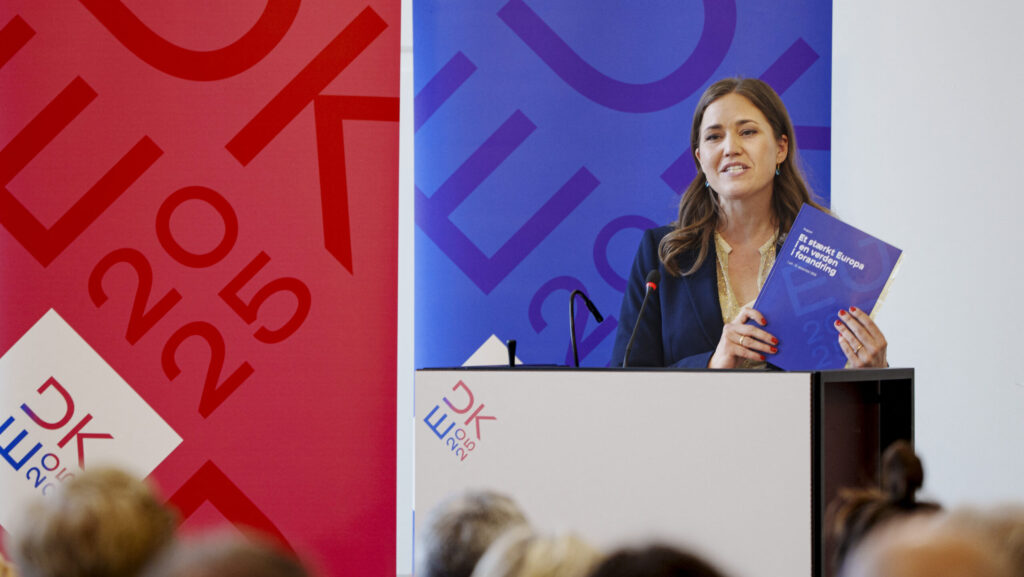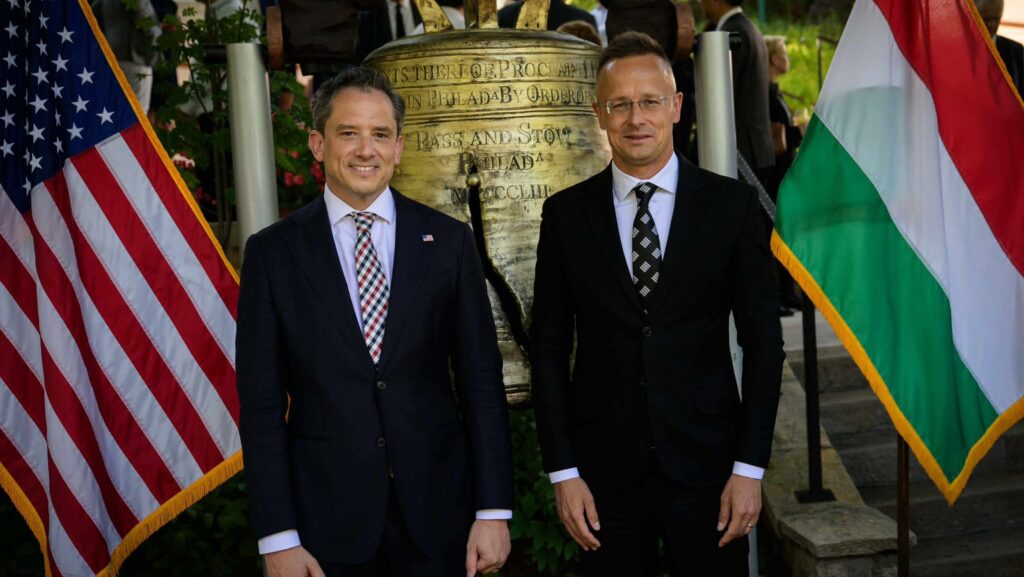The following is a translation of an opinion piece written by László Földi, intelligence expert and chairman of the board of the Safe Society Foundation, originally published in Magyar Nemzet.
Central Europe, like it or not, has a historical responsibility to prevent the outbreak of a nuclear world war—and this is not a dreamed up statement or a vision based on a misguided view of the region’s role. What is formally the Russo-Ukrainian war, but on another reading, a NATO–Russia regional military confrontation, and in fact, a superpowers’ struggle between the US and Russia, is now approaching a stage on Ukrainian that threatens the chances of maintaining European and world peace. The fact of the matter is that Ukraine is about to receive far more military equipment and weapons than ever before if the eleven countries that have said so send will indeed supply new weaponry to the country. In the past year, arms deliveries have continuously arrived in Ukraine, but this latest plan would signify a strategic turn. First if all, an important difference is that, in addition to German, French, British, and mainly American suppliers, countries such as Sweden or Denmark have also taken on an a major role among the senders. This spectacular paradigm shift is occurring while, amidst the cry of Polish and Baltic war horns, Czech and Slovak weapons would also make their way to Ukraine, as their governments have already announced.
Is that clear? Central Europe, which is the region most at risk in the event of a potential extended Russian attack with weapons of mass destruction, is joining the actual armed conflict—and that goes against common sense. Will the Polish political leadership—and not the Polish people—give up the strategic defence of their country for daily political gain? Do they think in Warsaw, Prague, and Bratislava that the unprincipled kowtowing to the United States is the key to their future? Is it really so hard to comprehend from the historical examples of hundreds of years that small nations always become cannon fodders if they get involved in the struggles of superpowers? Of course, it is not surprising that the sight of the Russian losses satisfies the Polish ego.
Not to mention that the embargo against Russian gas and oil also came in handy for Warsaw, as it resulted in the appreciation of the produce of Polish coal mines in the fossil fuel markets.
It is not an unsolvable puzzle either that the Czech and Slovak governments are doing what Washington has instructed them to do.
At the same time, if they take up arms against the Russian military, they will prepare the destruction of the whole of Central Europe and will also remove the defence umbrella from above other Central and Eastern European countries, including Hungary.
Central Europe is a natural corridor between the two superpowers, forming a buffer zone. In the last thirty years, it seemed that the leading politicians of the countries in this region clearly saw and understood what they could and could not do, and of course, perceived the limits and risks as well. In terms of the present day, 2023, this means that they cannot actively participate in a clash the escalation of which escalation would specifically threaten the security of their countries. Such was the situation in the 1990s when American military aircraft bombed Belgrade and dismembered Serbia according to the Western doctrine. Central Europe—along with the Western European nations—didn’t say a word and, out of self-defence, did not confront the attacking United States. In fact, none of the countries even dared to supply weapons to the attacked Serbia. If back then, we, Hungarians, together with the others, were able to remain calm and reasonable, then what is this great fighting spirit now, dear Polish, Baltic, Czech, and Slovak politicians?
Of course, it is possible that a global conflagration will occur even if this region of Europe remains neutral.
The bottom line, however, is that Russia will be forced to consider the use of nuclear missiles if it becomes unable to hold the front line with conventional weapons in the Russian territories recovered from Ukraine. Sending more and more effective weapons to the Ukrainians does obviously not forebode peace, but the escalation of the conflict.
Moreover, Moscow is not the only root cause of Ukraine’s waning—Germany is culpable for this process, too. Of course, it is not about those few rusty German armoured vehicles sent to the Ukrainian battlefield, but about ‘importing’ the Ukrainian workforce. By now, this process has become spectacular: although they do not want to become cannon fodders either, the majority of those leaving Ukraine are not fleeing from the Russians, but are seeking a more liveable life when heading towards Germany. A few years ago, the leaders of Berlin were still hoping to solve their labour shortage with illegal immigrants—today, however, it has become clear that the illegally arriving Asian and African invading army came to the countries of Europe to conquer them, and not to integrate into them. By contrast, the goal of Ukrainian workers of European identity is to integrate as quickly as possible and settle permanently in the German or other Western European labour market.
But what does this have to do with the countries of Central Europe? Not much, because Polish, Czech, Slovak or Hungarian jobseekers abroad are still as welcome in Austria, Germany or the British Isles, as they were before.
The role of the European territory that also includes Hungary is quite different in preventing the outbreak of a nuclear world war.
Together, we can protect Europe from an extended war if, like Hungary, no one from this region supplies weapons to either side, as was the case with Serbia.
An even more effective method of resisting the will of war hawks can be if Central Europe—from the Baltic Sea to the Balkans—does not allow weapons arriving from the West to pass through its territory. By doing that, a ceasefire would be established immediately, and peace talks between the warring parties would finally begin under international supervision. With the cooperation and determination of the countries concerned, the threat of a nuclear war could be removed from the agenda for a foreseeable time.
There is no need to fear that this move, unfriendly from Washington’s perspective, would launch NATO’s forces against our countries, because NATO—allegedly—is us, and not a representative of the interests of the US arms industry.
Click here to read the original article








